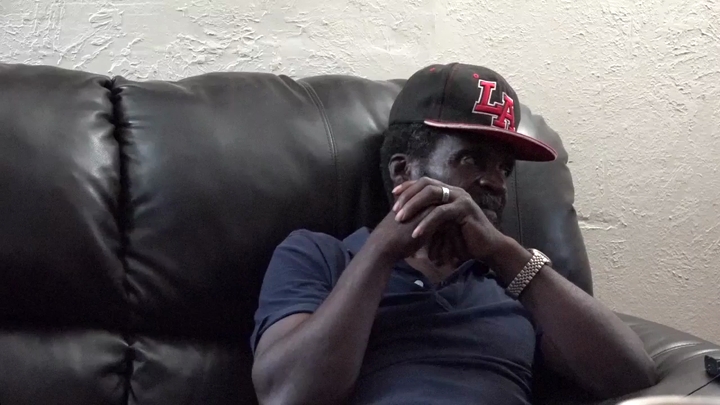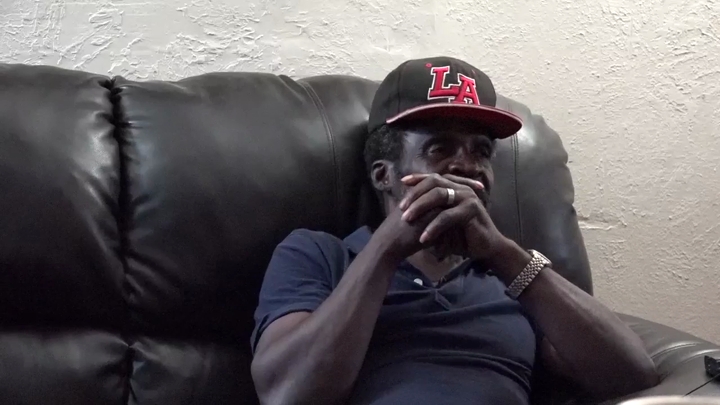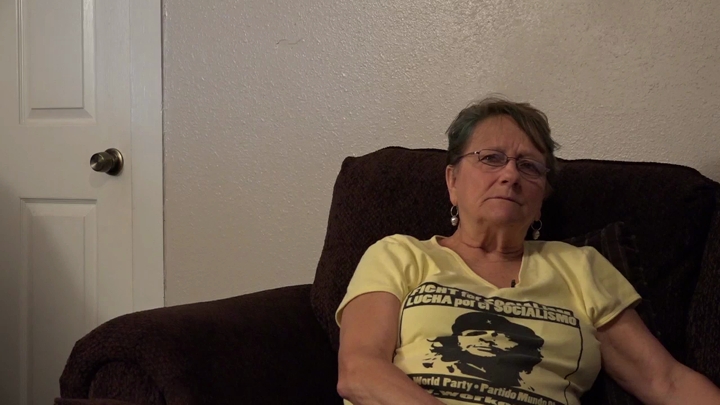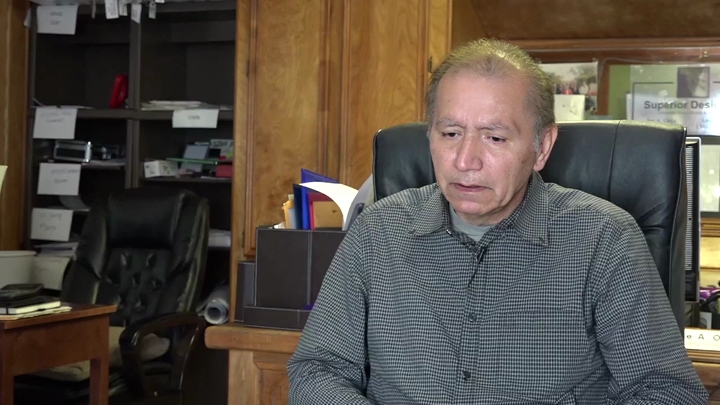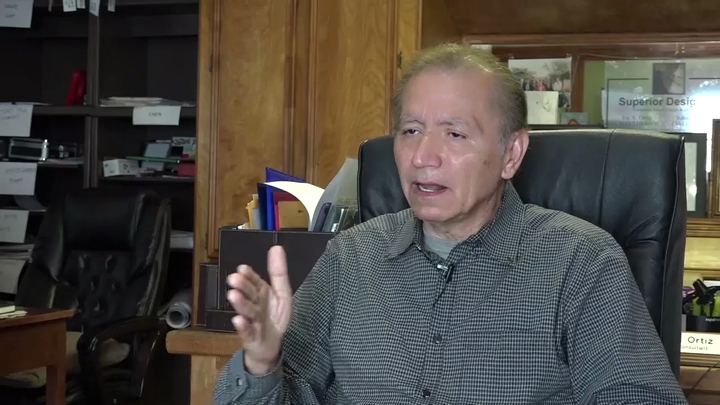Crear / You can Kill a Revolutionary but You Can't Kill a Revolution
sign up or sign in to add/edit transcript
Crear: Every year we have an event honoring Carl. Carl was assassinated July 26, 1970. So, this year it’ll be July 30. Twenty-sixth falls in the middle of the week. We do it because Carl was a Houston revolutionary. He set example. Just like we have a saying, “You can kill a revolutionary, but you can’t kill a revolution.” I think they thought by taking off the head, the party would cease to exist here, but instead all they did was strengthen us. We lasted, and we existed. So, we have to honor him every year, you know, it’s very important. A lot of people, the young people don’t even know about Carl. I remember last year, being over at SHAPE (inaudible). I was handing out things and this young brother said, “Somebody got killed on Dowling?!” I said, “Yeah. It was Carl Hampton.” (inaudible) said, “Thanks for letting me know.” Last year we had a pretty good turnout. We had about four hundred people turned out. What we did last year, we went to Pleasantville because that’s where Carl was born and raised. The people were very—they were happy. They were like thanks for coming out here, thanks for—it was a very successful program. We had Emery Douglas came down. Emery was the minister of culture who did most of—like these painting here, they’re all done by Emery. Emery if you look at any of the old Panther papers, he did most of the artwork on the back of the Panther papers. So, he came down and he had exhibit of all his paintings and did a slideshow on the history of—so, it was a very good program. Interviewer: One of the last questions, what do you think civil rights means? What does civil rights mean to you. Crear: See that’s the thing. That’s what I tell people all the time. We believed in human rights, but see, the civil rights movement was necessary. Civil means law. The laws were already on the books. It’s just all who’s in control and who’s interpreting what the law is. So that’s why you had to have a civil rights movement. Forcing these states—just like they’re doing now with states’ rights. They’re trying to say they don’t want to honor same sex marriage, that the state has a right. Just like with the civil rights movements, the federal government has to come in and say no. We believe that we were the next step after Malcolm. I mean, we really looked up to Malcolm. That’s what Malcolm talked about was human rights. So human rights was basically like Ten-Point Platform Program. People have a right to employment, have a right to housing, have a right to medical care. Have a right to live in a community where they’re safe and don’t have to be worrying about police harassing them. That was the next step from civil is human rights and that’s what we believed in. Like I said, civil is law. Just like—one more thing about law. I hear some brothers (inaudible). United States Constitution, ain’t nothing wrong with it. In fact, Vietnam, which was a Communist country, their Constitution is almost exactly like the Constitution of the United States. Almost word for word, because Ho Chi Minh read the U.S. Constitution. It’s all who is in control. Just like some people interpret the Bible in different kind of ways. They’ll use the Bible to support racism or sexism. During Apartheid in South Africa they used the Bible to justify Apartheid. So, it’s all who’s in control and who’s in power that interprets—not necessarily interpret, but who’s enforcing the law the way they see fit. Interviewer: What do you think are some of the issues that the African American community of Houston face today? Crear: Lot of them, just like I said the more things change, the more they stay the same. For one thing, and one of the biggest issues is employment. That’s the thing about this capitalist society. When I was a kid, they was talking about how this technology was going to make life better and everything, but technology, a lot of the jobs have been taken over by technology. Just like people that pick up the trash. Used to be three people on the truck, now it’s one. You can’t call any company or any area in the city and you get a recording. You don’t have no operators anymore. A lot of it was the same problem, especially in the black community. The unemployment rate is very high especially among the youth. You leave here, and you go north, and you get to the Bottom. That’s where the lowest of the low live. A lot of them youth over there, they have no hope. They don’t see any—it’s just like when you see these young folks committing these crimes, and I say it just shows how desperate they are because there’s cameras everywhere. You know what I mean? But they’re in a desperate situation. A lot of them have no hope, they don’t see any future. They still got to live. Some of them have families. The educational system is a joke because they don’t think you how to think. They teach you what to think. They don’t teach to you how to think, how to be analytical because it’s all program. The police—and the situation with the police is not as bad. Some of the youth, they’ll say its as bad. Believe me, it’s not as bad as it was in the fifties, sixties, seventies, but it’s still bad because they still act like an occupying force. Like I said, it’s them against us.
| Interview | Interview with John Crear |
| Subjects | Citizenship |
| Citizenship › Political Rights | |
| Housing | |
| Housing › Neighborhoods | |
| Religion | |
| Police and Law Enforcement | |
| Medicine and Health | |
| Historic Periods › 1970s [Exact Date Unknown] | |
| Military › Vietnam War | |
| Black Power › Black Panthers | |
| People › X, Malcolm | |
| Quantitative Questions | |
| Tags | Hampton, Carl |
| sign up or sign in to add/edit tags | |
| Interview date | 2016-06-06 |
| Interview source | CRBB Summer 2016 |
| Interviewees | Crear, John |
| Interviewers | Enriquez, Sandra |
| Rodriguez, Samantha | |
| Locations | Houston, TX |
| Duration | 00:06:54 |
| Citation | "You can Kill a Revolutionary but You Can't Kill a Revolution," from John Crear oral history interview with Sandra Enriquez and Samantha Rodriguez, June 06, 2016, Civil Rights in Black and Brown Interview Database, https://crbb.tcu.edu/clips/3524/you-can-kill-a-revolutionary-but-you-can-t-kill-a-revolution, accessed February 25, 2026 |


